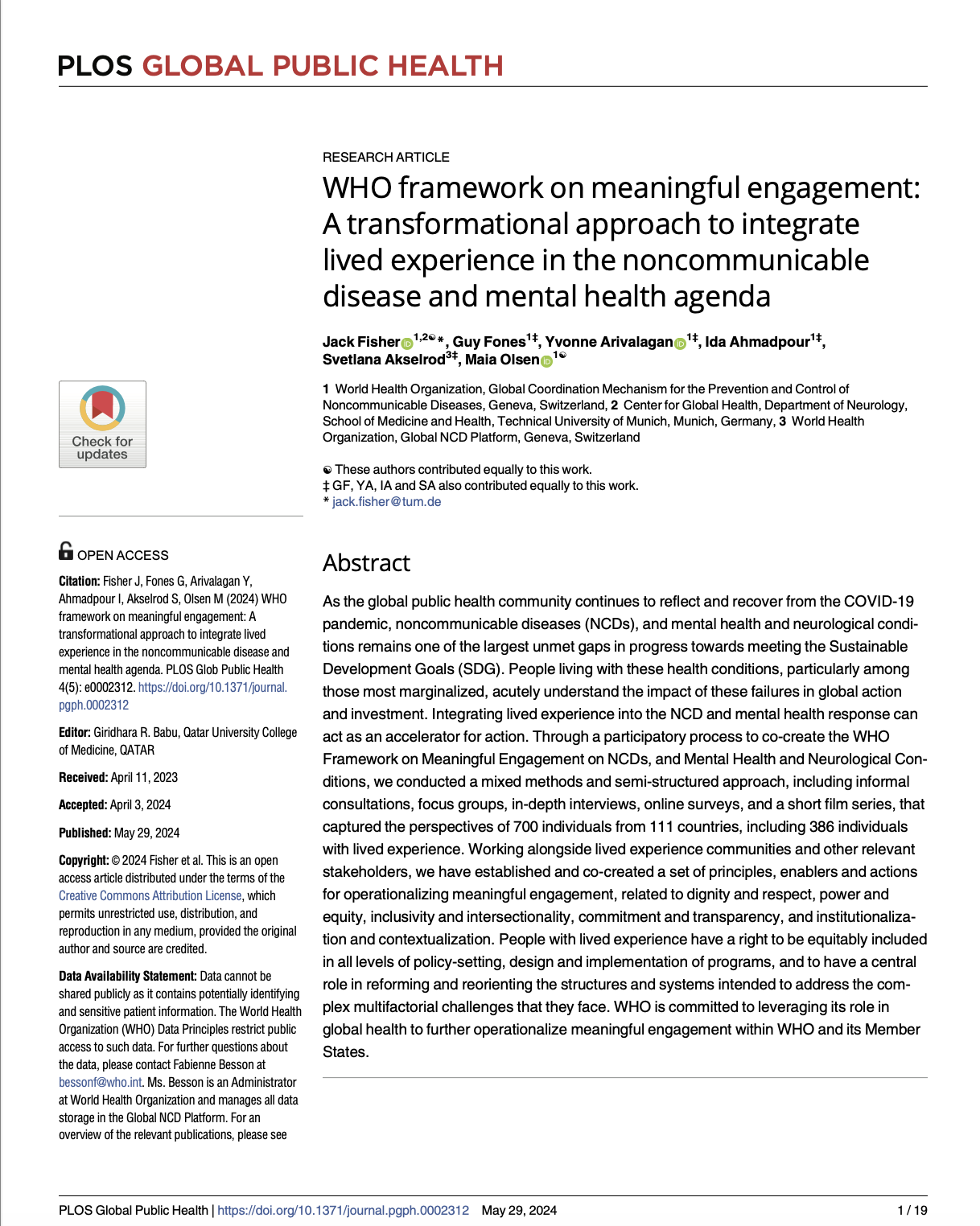Science Direct: Social Sciences and Medicine
Epistemic struggles: The role of advocacy in promoting epistemic justice and rights in mental health
Article
22 Nov 2024
22 Nov 2024

As the global public health community continues to reflect and recover from the COVID-19 pandemic, noncommunicable diseases (NCDs), and mental health and neurological conditions remains one of the largest unmet gaps in progress towards meeting the Sustainable Development Goals (SDG). People living with these health conditions, particularly among those most marginalized, acutely understand the impact of these failures in global action and investment. Integrating lived experience into the NCD and mental health response can act as an accelerator for action. Through a participatory process to co-create the WHO Framework on Meaningful Engagement on NCDs, and Mental Health and Neurological Conditions, we conducted a mixed methods and semi-structured approach, including informal consultations, focus groups, in-depth interviews, online surveys, and a short film series, that captured the perspectives of 700 individuals from 111 countries, including 386 individuals with lived experience. Working alongside lived experience communities and other relevant stakeholders, we have established and co-created a set of principles, enablers and actions for operationalizing meaningful engagement, related to dignity and respect, power and equity, inclusivity and intersectionality, commitment and transparency, and institutionalization and contextualization. People with lived experience have a right to be equitably included in all levels of policy-setting, design and implementation of programs, and to have a central role in reforming and reorienting the structures and systems intended to address the complex multifactorial challenges that they face. WHO is committed to leveraging its role in global health to further operationalize meaningful engagement within WHO and its Member States.